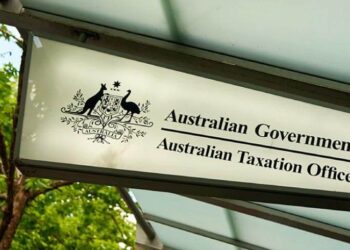The decision, JPD as Guardian v DMS as Trustee [2022] QSC 181, involved a dispute between a trustee of several related trusts and the father of the trusts’ four child beneficiaries.
The mother of the children died in August 2017. She was survived by her four children and their father.
The mother and the father were married for many years but had divorced and reached a financial agreement by the time of her death.
The mother’s will bequeathed her property to be held on trust pursuant to a discretionary testamentary trust under which the children are the primary beneficiaries. The will had the effect of allowing the creation in due course of a minors’ trust fund to hold the mother’s superannuation benefits on trust for the children as beneficiaries.
The will appointed two people as both executors and trustees: the children’s aunt and the mother’s close friend. The aunt renounced in August 2018. The mother’s friend remains the sole executor and the sole trustee of both the trusts.
As executor she was the sole shareholder and a director of a company trustee for a trust of the mother’s, the visionary trust, which owns units in an investment unit trust. The children and any trust in which they have an interest are beneficiaries of the visionary trust.
One of the testamentary trust’s assets is a five-bedroom residential property in Edmonton. It was the mother’s home prior to her death.
In addition to consolidating ownership of the mother’s home in Edmonton in June 2018, the trust also acquired two residential properties in Bentley Park in 2020.
There were various legal disputes between the father and the trustee.
The occupancy of the property at Edmonton by the family was pursuant to a lease by which the trustee leased the property rent-free to the father and the children for a fixed term commencing 14 July 2018, ending 13 July 2021.
The trustee informed the father, via a letter from her solicitor of 9 July 2021, that the lease would not be renewed, that the family would need to vacate by 10 December 2021, and that the four-bedroom residential property in Bentley Park had been acquired by the trust with a view to the father and the children residing there. A formal notice to leave by 10 December 2021 was not complied with.
On 12 November 2021, the father advised the trustee by letter from his solicitor to hers that he and the children were to relocate to Brisbane for the start of the 2022 school term and sought financial assistance for the children to live and be educated in Brisbane. On 29 November 2021 the trustee refused that assistance by a letter from her solicitor to the father’s solicitor.
Due to the father’s lack of material independent resources, this refusal had the practical effect that the family could not live in Brisbane as it wished.
In a letter sent in December 2021 from the father’s solicitor to the trustee’s solicitor, the trustee was given further information about the desirability of the family’s move to Brisbane to live and was asked to re-consider her decision of 29 November 2021. There was no response to that aspect of the letter.
The father then sought orders to have the trustee replaced as trustee of the testamentary and minors’ trusts and executor with an independent solicitor.
In his decision, Justice James Henry noted that the trustee in this case had been entrusted with an absolute discretion, which was hers to exercise.
“The trust documents do not use language which confine the breadth of the discretion beyond the ordinary requirement, characteristic of trusts generally, that the discretion to apply the trust funds is exercised for the benefit of the beneficiaries. That requirement does not impose a general obligation on a trustee to consult beneficiaries or their guardians, to ascertain their views,” Justice Henry stated.
“However, the trustee’s broad discretion must be exercised in a proper way, by reference to proper considerations, so that in some cases consultation may be appropriate in order to give proper consideration to what is for the benefit of the beneficiaries.”
The father stated that the trustee had insufficient regard to the welfare of the beneficiaries in the contemporary context of them being raised together as a family by him.
He claimed that the trustee in her behaviour demonstrated a lack of respect for the importance of his position in the children’s lives and disinterest in genuinely attempting to consult him about major decisions bearing upon the children’s contemporary welfare.
The trustee’s accounts of her conversations with the mother showed the mother had hoped the father would fund their children’s upbringing and that by the time they were adults the trust could afford to give one house each to each child.
The Court noted that the trustee had retained a zealous allegiance to the wishes of her dead friend, particularly the aspiration of one house each for each child in adulthood.
However, Justice Henry suggested the mother’s wishes were misplaced based on the fact the father had no substantial assets or income, had not been in paid employment for some years, and did not intend to resume his career while bringing up his children.
“If he is left to raise the children without the financial assistance of the trust it is obvious that, for the balance of their important formative years, the children will reside in housing and receive a level of economic support in their education and day-to-day living which would be grossly inferior to that which the trust can readily provide,” sated Justice Henry.
“Whatever the mother’s hopes may have been it cannot be doubted, had she known the father would not resume gainful employment, that she would have wanted her substantial assets to be administered to fund a more comfortable upbringing for the children than the father can afford.”
Justice Henry also noted that the trustee had failed to comply with an undertaking that she would provide quarterly financial statements in the form of an unaudited statement of cash flows and balance sheets to the father within 21 days of the end of each quarter.
He also highlighted that the trustee had made no attempt at consulting the father before making the determination of where the family would reside.
“There would be many matters which a trustee, genuinely seeking to be properly informed about the children’s welfare, would have been interested in finding out from the father because of his unique position as the children’s sole parent and only adult within the family unit,” stated Justice James.
Justice Henry concluded that while the trustee had been entrusted with the role by the mother and replacing her with a solicitor would increase the costs of administering the trust, the trustee’s conduct compelled the court to remove and replace her as trustee.
“The trustee’s dual pattern of a lack of respect for the importance of the father’s position in the children’s lives and her disinterest in genuinely attempting to consult him about major decisions bearing upon the children’s contemporary welfare has adversely affected her approach to properly informing herself as to the children’s welfare for some time now,” he stated.
Justice Henry said the impact of this pattern of behaviour was “incontrovertibly exposed” by the manner in which she refused the family to move to Brisbane.
“When the trustee is making decisions of the highest importance to the interests of the beneficiaries, who are minors being raised in a sole parent family, it is inescapable that the central, most important source of relevant knowledge about those interests is the person in the position of their sole parent,” he stated.
“The trustee has proved herself so unwilling to give that position the weight it deserves vis-à-vis the children’s interests that when making such decisions she fails to even attempt to sufficiently inform herself about those interests by trying to consult the father. Her failure to try and sufficiently inform herself about what was in the children’s best interests was inconsistent with her obligation to administer the trust for their benefit.”



The level of animosity between the trustee and the father would have been so high by the time it came to court that the appointment of an independent solicitor would seem appropriate for the children’s sake.
Good, a court decision that actually makes use of some common sense.